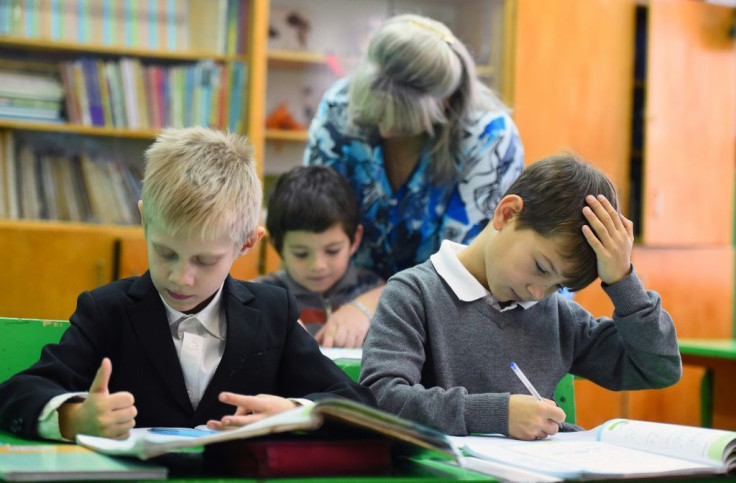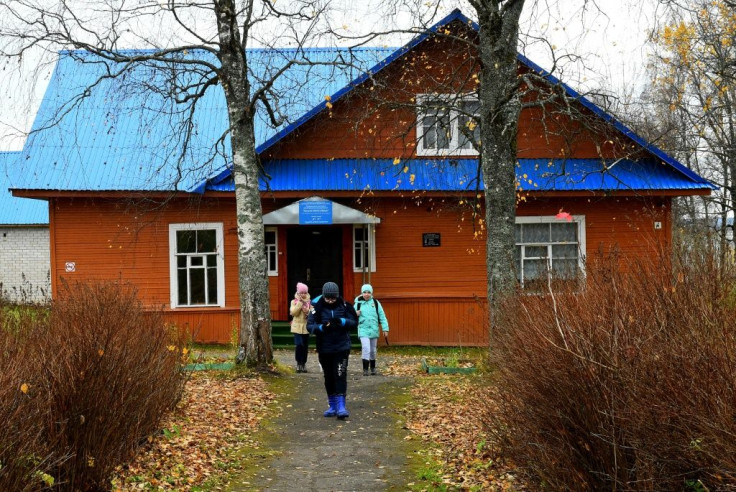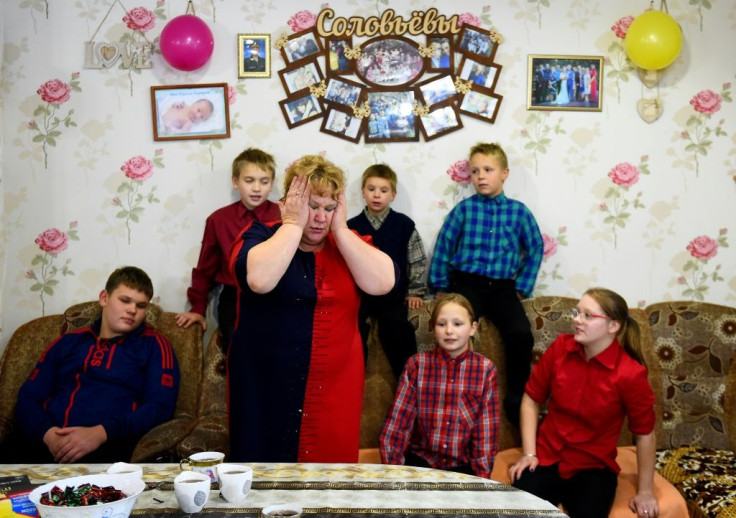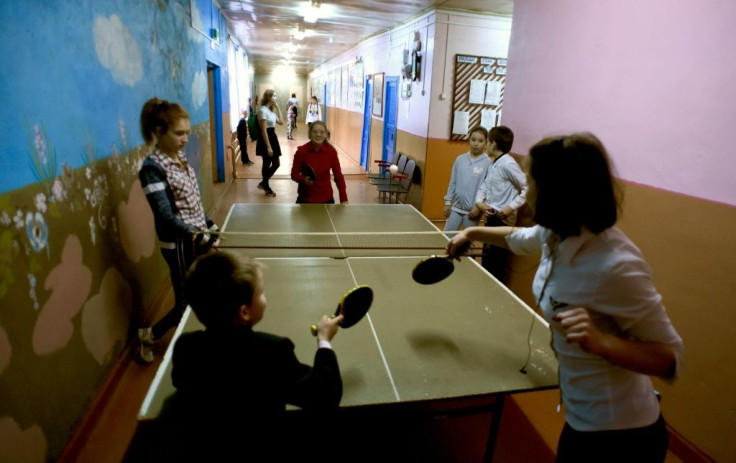How Russia's Foster Children Are Saving Dying Villages

In a small room with a blackboard and lace curtains, first-grader Danya listens as his teacher explains the concept of vowels and consonants. In this village school with 36 pupils, he is one of 13 foster children.
"Adoption is how the school and the village have survived," says headmaster Gennady Chistyakov who like most Russians uses the term adoption to refer to foster care. "If it weren't for the children, we would be shut."
Foster children have become a lifeline not only for Chistyakov's village of Brodi, about 500 kilometres (300 miles) north of Moscow, but for countless other rural communities.
They are facing a slow death from unemployment and precipitous population decline, followed by closures of schools and clinics.
"People leave with their children, leading the schools to shut, and leaving only retirees," says Vera Galindabayeva, a sociologist at the Russian Academy of Sciences who studies the fostering phenomenon.
"Eventually such villages disappear."

In areas of chronic unemployment like Novgorod, the rural region between Moscow and Saint Petersburg where Brodi is located, the compensation that comes with fostering a child is considerable, at nearly 6,000 rubles a month ($93, 85 euros).

Residents in some villages have hit on a solution -- to foster a large number of children at the same time. This way, they can prevent the local school from closing, keeping an important institution running with salaried staff.
Galindabayeva estimates that hundreds of schools have managed to escape "optimisation" -- the euphemism used by the Russian government for shutting down health and education facilities when they are deemed unnecessary.
Russia's population has fallen by more than five million since 1991, a demographic crisis aggravated by the economically painful breakup of the Soviet Union.

Despite initiatives launched in recent years, such as financial incentives for having a child earlier or having more than one, the population still decreased in the first six months of 2019 by another 68,000.
Some large cities, especially Moscow, are swelling, but the demographic collapse has hit Russian villages hard. Of 26,000 schools shut in the last two decades, 22,000 were in rural areas.
The Moshenskoy district, which includes the village of Brodi, once had 15 schools. Now it is down to three.

With its sounds of children playing, Brodi stands in sharp contrast to the surrounding ghost towns full of empty homes.
Headmaster Chistyakov says this is thanks to the mass fostering effort.
"If the school is open, the village continues to live," he says. "Meanwhile, the state supports people who take care of the orphans," and they are not desperate to move away in search of a job.
The arrangement also benefits children who would otherwise grow up in state institutions.
Often abandoned by alcoholic parents, children emerge from Russian orphanages "in a state of emotional deprivation", says Irina Kudryavtseva, an education official in the local administration.
Since 1998, Brodi history teacher Ekaterina Solovyova has fostered 11 children with her husband, a sports instructor. "On my birthday, my house is packed," she says, flipping proudly through the family photo album.
The Solovyovs are currently raising seven-year-old Danya and three other foster children aged up to 17 as well as their own youngest son.
Solovyova, 52, says having a large family is a way of life, vehemently denying it is a cold-hearted strategy to save her job at the school. "They are all my children," she says.
But while Brodi has survived the demographic crisis, it is facing another challenge: the lack of a new generation of teachers.
"There are no young teachers in villages. The schools will keep working until the current teachers retire," predicts sociologist Galindabayeva.
This points to the root of the problem. "There is no employment, so the young leave," says Chistyakov, the headmaster.
The Solovyov family is proof of the trend: three of their own children, as well as seven they fostered, have left the village to live and work far away.
mak/alf/ma/mm/jxb/jj/kaf
© Copyright AFP 2024. All rights reserved.





















